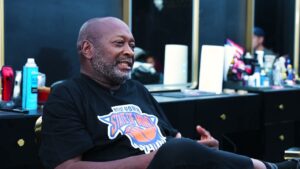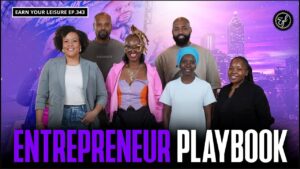On a recent episode of My Expert Opinion, Tommy Walker sat down with Math Hoffa and the panel for an unflinching conversation about how emotions, ego, and lack of knowledge often prevent incarcerated people from moving forward in their cases.
Having served three consecutive life sentences before ultimately regaining his freedom, Walker unpacked how he shifted his own approach, and how he spent years inside teaching others to do the same.
While incarcerated, Walker built a reputation as both a student and teacher of the law. He began holding classes for fellow inmates, starting with just a handful of participants before growing to 30–60 students at a time.
In those sessions, he focused on practical skills: letter writing, communication with lawyers, researching case law, and drafting motions. But his core lesson was always the same, separate feelings from issues.
According to Walker, too many inmates argued emotionally instead of focusing on facts and procedure, which undercut the strength of their cases. He also emphasized the importance of understanding court rules, pointing out that even well-written motions can be dismissed on technical grounds if procedure isn’t followed.
Walker explained that giving advice in prison is a challenge, especially to people who are used to being in positions of power. Many inmates, including drug kingpins, were resistant to guidance because they were more accustomed to giving orders than taking them.
He recalled occasional clashes with someone named Prince, though he noted Prince’s intelligence made it possible to have meaningful legal discussions. Ultimately, Walker concluded that people must want to listen before they can accept help.
Walker also pointed to listening as a crucial skill. He highlighted the difference between listening to respond and listening to understand, citing statistics that only about 15% of people actually listen for understanding.
In prison, he saw the consequences firsthand. He described an inmate who constantly argued with his counselor about unfulfilled requests. The counselor repeated that the requests had to be made in writing, but the inmate ignored the instruction out of frustration. For Walker, it was a lesson: procedures matter more than emotions.
Extending the point to the wider justice system, he argued that many motions are denied not because of weak arguments but because defendants fail to follow proper procedure.
Reflecting on his own journey, Walker admitted that he once reacted emotionally but learned anger and ego only held him back. Over time, by paying close attention to judges, prosecutors, and legal rules, he began to see things more objectively, even recognizing when he was in the wrong.
He stressed that many defendants sabotage themselves by refusing to listen, often blaming bias or unfair treatment when in reality, they ignored instructions or overlooked simple procedural steps.
Walker’s evolution inside wasn’t just personal; it was practical. He immersed himself in legal study, eventually creating a tool called Paralegal Pal to assist with research. Because laws constantly evolve, he stressed the importance of keeping information up to date.
It took nearly 20 years before Walker felt confident enough to teach others extensively, but he insisted that knowledge, at any level, should be shared. Asked how he eventually overturned his own situation, he tied his freedom back to the same principles he taught: focus on procedure, apply the rules, and don’t let emotions cloud judgment.
At the heart of Walker’s appearance on My Expert Opinion was a simple but powerful takeaway: emotions and ego can act as invisible chains, keeping people locked up mentally, and sometimes physically.
By shifting focus from feelings to facts, listening with understanding, and mastering legal procedures, individuals can begin to break free of the cycles that keep them trapped.






